One of the most beneficial services available to military service members is Space-A (Space Available) travel.
Sadly, it is not used nearly as much as it could be because of the mystery of how to use it, the requirements and people just not knowing about it.
So, what are Space-A Flights?
Related Article – Air Force Flight Attendant (1A6X1): Career Details
Table of Contents
What Are Space A (Available) Flights?
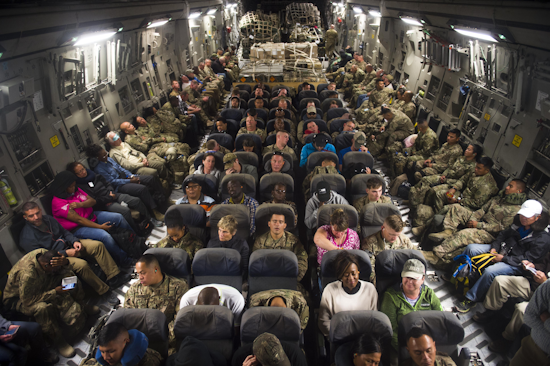
Space-A flights are low-cost or free flights for service members, retirees, and their family members on military aircraft based on the “Space Available” on the flight.
Basically, the military has many flights each week to support its mission worldwide.
Some flights, such as the Patriot Express, leave from Seattle, Washington, to the Asia Pacific, are like commercial flights, while others are on tactical aircraft.
With Space-A flights, you need to be flexible with your travel timelines, and there are a few documents that need to be filled out.
Additionally, there are other obstacles you may face, such as your travel eligibility and seat priority.
I have compiled a list of 7 things you need to know about Space-A Flights to demystify the process and get you traveling on a budget.
#1. Process
The process for applying for Space-A flights is pretty simple, but there are a few things that you need to consider to take full advantage of the program.
Categories
There are six travel eligibility categories that you must fall under to use Space-A.
Each travel category has a priority assigned to it, and they will ticket passengers based on available seats and their priority.
Locations
You should review the available destinations from your local AMC Passenger Terminal.
There are 16 CONUS locations and many more worldwide.
Luckily, most passenger terminals now have Facebook pages with their 72-hour flight schedules.
The locations can be found at AMC Travel Site at the bottom of the page.
Documents
Specific documents are required based on the location you want to travel to.
Documents include passports, leave forms, unaccompanied dependent forms, visas, military orders, travel request forms, and other AMC-required forms.
Dependents 10 years old or older also must possess a valid military ID.
Always contact your local AMC Terminal ahead of time to ensure you have everything, or they will turn you away even if a seat is available.
Register
You will always register with the AMC terminal that you will use since HQ AMC is not a part of the sign-up process.
This includes the terminal you are departing from and the location you are returning from.
So, make sure you contact both terminals.
This can be done via email, in person, or through the Space-A Travel Registration form: Space Available Email Sign-up Form.
The form is good for 60 days or until your leave expires.
Active duty service members must be on a leave status throughout the process.
If you do not receive a confirmation email, please get in touch with the terminal directly and provide them with a copy of your request form.
Flight Schedule
After registering for a flight, make sure you continue to monitor the schedule through the AMC Passenger Terminal Facebook page and make sure you are present when the roll call is conducted.
#2. Travel Eligibility
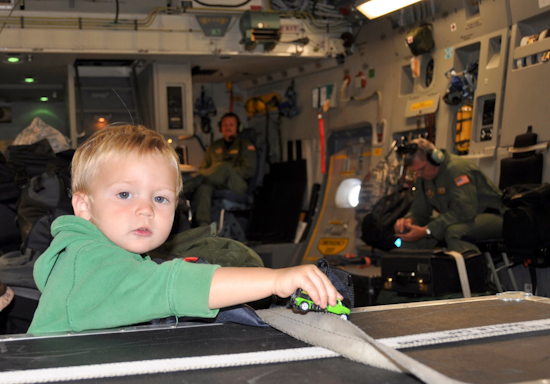
Now that we have reviewed the process, let us discuss the travel eligibility categories.
Category I passengers have the highest priority, while Category VI passengers are the lowest.
Category I – Emergency Leave Unfunded Travel.
It is reserved for emergency travel when an immediate family member is seriously ill, passed away, or impending death.
Category II – Accompanied Environmental and Morale Leave.
EML is divided into two categories: Unfunded (UEML) and Funded (FEML).
UEML uses military aircraft, while FEML uses commercial transportation because military aircraft are unavailable.
Service members must be assigned to specific overseas installations to apply for this.
Category III – Ordinary Leave, Relatives, House Hunting Permissive TDY, MOH Holders & Foreign Military
Most service members will fall under Category III because it is used for leave, house hunting, dependents when a member is deployed for more than 365 days, and dependents who are accompanied by the service member to and from overseas locations.
Category IV – Unaccompanied EML
It is like Category II, except it is used for dependents of military members who are deployed for over 30 consecutive days.
Category V – Permissive TDY (Non-House Hunting), Students, Dependents, Post Deployment/Mobilization Respite Absence & Others
Unaccompanied command-sponsored dependents, students whose service member is stationed in Hawaii or Alaska, and military members traveling on permissive TDY orders.
Category VI – Retirees, Reservists, 100% Disabled Veterans, and Surviving Spouses of Deceased Service Members/Retirees
Category VI is the lowest priority for Space-A travel and includes National Guard and Reservists, retired military members and their spouses when accompanied, 100% disabled veterans, and surviving spouses.
#3. How to Look for A Flight
Your best source for flight information is through the AMC Passenger Terminal.
Their Facebook pages contain the 72-hour flight schedules, including the roll call times and the seats available.
The terminal may also provide additional flight schedules outside of the 72-hour window.
When flying from Seattle to Okinawa, Japan, for example, they provided me with a schedule past the 72-hour window.
#4. Preparing for Your Flight
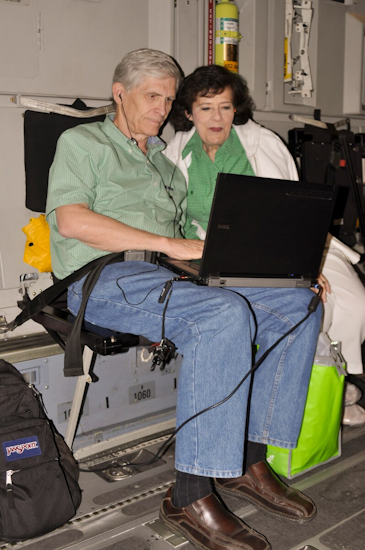
Having all your paperwork on point is essential to fly Space-A.
Review all your paperwork, make sure any forms filled out by the service member’s command are signed by the appropriate commander level, and have all of your passports available.
AMC will not accept the paperwork if a form is not signed by the appropriate command level.
Family Members and DoD civilians on official travel to Germany, Japan, and the Republic of Korea must have a Special Issuance Passport (SIP) or apply for one and have a regular tourist passport if the SIP is unavailable before travel.
#5. Pros and Cons of Space-A Travel
There are many advantages to traveling Space-A, but there are a few things to consider when applying for it.
Advantages of Space-A Travel
The most significant advantage is that Space-A is free except for traveling on the Patriot Express, where you pay a small fee.
The Patriot Express is like a commercial flight, where you will have a standard seat, food and drink services, and in-flight entertainment.
Disadvantages of Space-A Travel
Nothing is guaranteed with military travel.
Schedules change constantly, flights get canceled at a moment’s notice, and the process can be time-consuming.
When you sign up for Space-A travel, you are not signing up for a seat, but rather, you are signing up for the opportunity for a seat.
You may show up for your flight and wait several hours to be told that you have not been accepted because of the space available and your priority.
Do not expect your flight to be smooth on military aircraft; it may be loud, hot, cold, or the seat may not be comfortable.
Even if you can fly to a location, it does not guarantee a flight back because of availability and priority.
#6. Traveling Without Sponsor
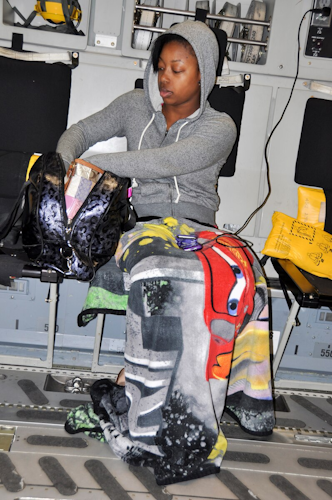
Many people do not know that a dependent over 18 can fly Space-A without their sponsor.
You first need a letter from the sponsor’s command authorizing you or your dependent to fly Space-A.
The following categories allow you to fly Space-A without a sponsor:
- Deployed Sponsor: Over 30 consecutive days or 365 days for category III.
- Unfunded Environmental and Morale Leave: Available based on location.
- Command Sponsored Dependent: The dependent and sponsor are stationed overseas. Not authorized CONUS to CONUS.
- Non-Command Sponsored Dependent: The Sponsor is stationed overseas, and the dependent is not.
Don’t hesitate to get in touch with your local AMC Terminal for more information if you have any questions or concerns.
#7. Other Things to Know
There are a few miscellaneous things to consider when using Space-A to ensure you are properly prepared for your trip.
Pets are only authorized for PCS moves, and aircraft have minimal space.
I can speak from my experience of traveling to Japan with my dog.
Since Japan is a rabies-free country, there are many different forms and vet visits you need to complete to have your animal come to Japan.
The process should start several months before the PCS date and include a quarantine period for your furry friend.
Even if you make it to your destination, you may not have a flight back.
When planning your trip, ensure you have enough money for a return flight, lodging, and food.
I would also suggest packing a small jacket in your carry-on if it gets cold.
Non-Patriot Express flights do not have food or drink services, so bring some snacks and beverages.
Also, if you have children, bring some entertainment, such as a few downloaded movies.
Conclusion
Space-A travel is an excellent benefit that you can enjoy to explore the world.
You will have an excellent trip with proper planning and expectation management.
Paperwork and timeliness are king for AMC Passenger Travel Terminals.
Get your paperwork completed and submitted and show up on time, and you will have a smooth trip if space is available for your flight based on your category.
- 10 Best Tactical Vests - June 24, 2024
- 7 Best Tactical Fanny Packs For Concealed Carry - June 20, 2024
- 10 Best Military Tactical Sunglasses - June 20, 2024

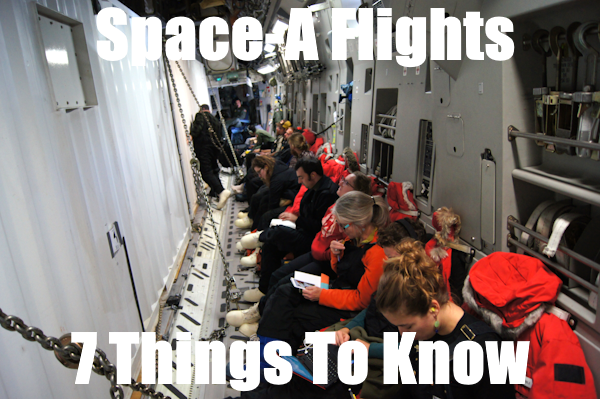




Thanks! I’m a medically retired disabled veteran, and have always “known” about these flights but never really looked into them, nor knew anything about them. If I had known EVEN PART of the information you provided, I’d have had my wife and son join me when I was in Korea, instead of flying back to the states. I now plan on trying to utilize them for my wife and myself, but since it seems that I’m now the lowest category, I might just have to be a bit more patient/flexible than I’d be otherwise…but free/low-cost flights? Yes, please. I wish I’d have seen this article YEARS ago. Thanks again!
No problem Chad, glad to help!
Rob V.
OMK Owner / Founder